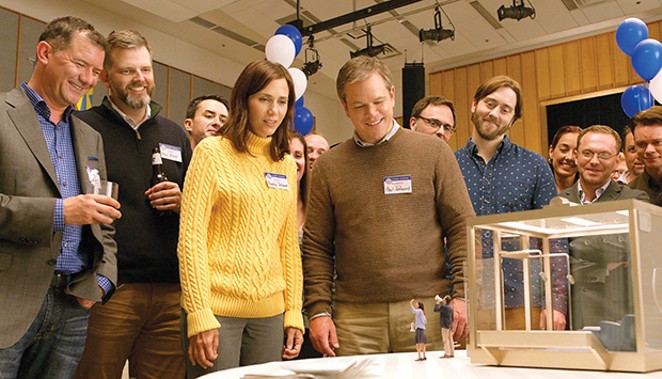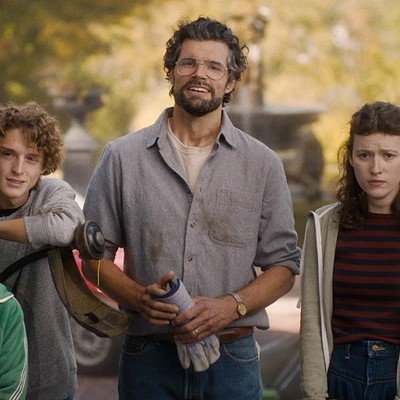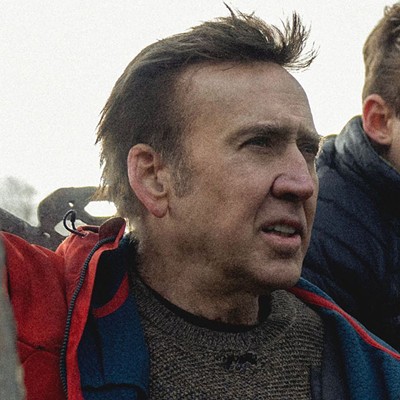I have a feeling that many viewers will find the premise in Alexander Payne’s Downsizing rather appealing. As written by director and screenwriter Jim Taylor, it posits a future in which people can voluntarily undergo an irreversible procedure through which they will be shrunk to approximately six inches and then live in a micro-community of their choosing. Extreme? Yes. Perks? Turns out there are many. Not only will you feel good about yourself for helping the environment – this procedure is introduced as a way to conserve resources and combat pollution – but the rate of exchange where your money is concerned is phenomenal.
$150,000 translates to more than $12 million once downsized. While you might be barely making it by in the real world, you can live like a king in the microscopic world. Could there possibly be a downside?
Paul Safranek (Matt Damon) doesn’t think so, eager to make the change once he realizes he’ll never get ahead working his dead-end job. Besides, he wants to give his wife Audrey (Kristen Wiig) the life he thinks she deserves. They decide to take the plunge, but at the last minute she bails and Paul wakes up in his micro-hospital room, where he takes a very awkward phone call from his wife, telling him he’s on his own.
Needless to say, this is a lot for our hero to deal with, and for quite some time he’s just not the same. His freewheeling neighbor Dusan (Christoph Waltz), an opportunist who’s made a mini-fortune, tries to get him out of his funk, but to no avail, though upon meeting his cleaning woman Ngoc Lee Tran (Hong Chau), a former Vietnamese dissident, Paul’s eyes become open to his purpose in this strange, small world.
Payne takes quite a few chances here narratively, as the humor at play is subtle and at times dark, while the social commentary, though on point, could have been developed further. The film starts to lose its shape during the third act when Paul sets out on a journey of self-discovery, and it could have used a trim of about 20 minutes.
And yet there’s a degree of charm and earnestness to the film that makes it a worthwhile experience. Paul’s journey towards self-actualization seems genuine, as it’s one that comes in fits and starts. There’s no bolt-from-the-blue moment that miraculously opens his eyes, but his cumulative experiences after he’s shrunk that leads to his transformation. This as well as Damon’s quiet, modest approach allows us to relate to Paul in a way that’s quite rare in the movies. There are times when we sympathize with him, others when we are infuriated with his short-sightedness, and finally relief when he realizes his purpose. There’s a humanistic arc to this character that’s a delight to witness as Damon gives us an everyman for the 21st century. In only her second film, Chau is a revelation. Initially fiery and bitter, Ngoc also undergoes a radical change that the actress infuses with warmth and sincerity. That we smile as we see her life turnaround is due in large part to the actress’ sincerity.
It should come as no surprise that a change in environment is not the solution to Paul’s woes, and while everyone else in his micro-community seems happy, I’m sure there are some still suffering from that inexplicable ennui we all grapple with. No, change comes from within, a point Downsizing drives home in an effective, albeit sometimes sloppy way.
For reviews of All the Money in the World and Greatest Showman, go to the Cinemascoping blog at http://illinoistimes.com.


















